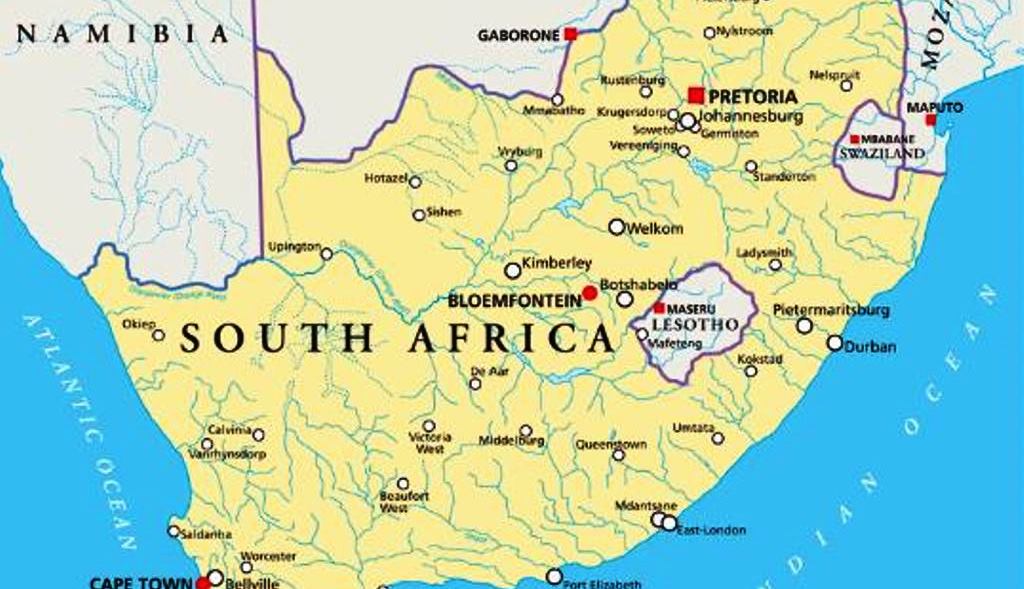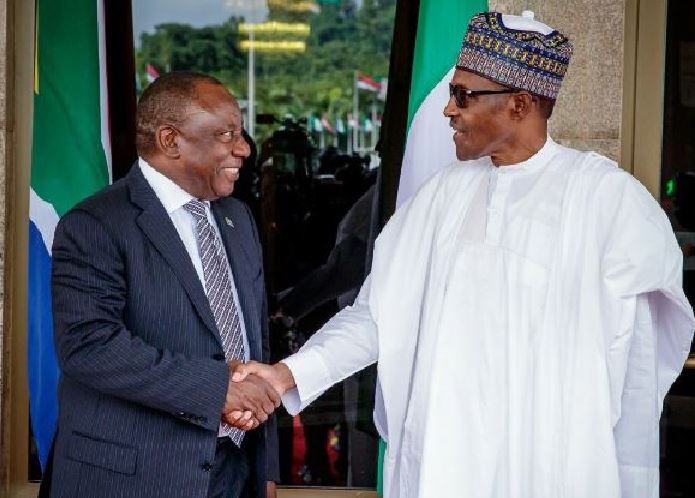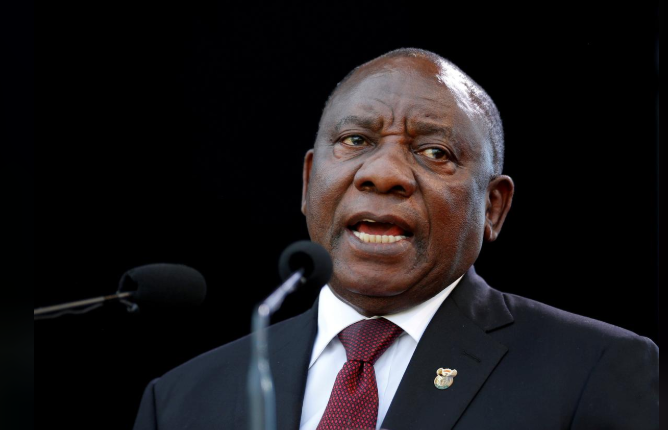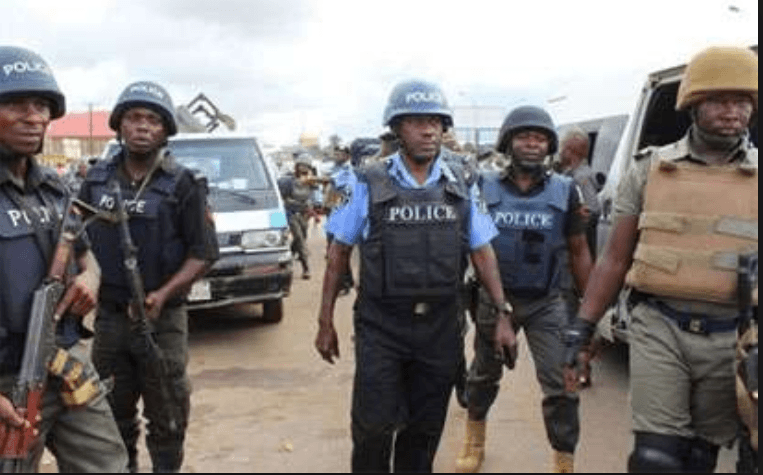If the occurrences in South Africa weren’t that tragic and inhumane, Nigerians could vote for them as a cure for the dangerous divide in the polity, especially after the 2015 general election.
Since the news broke, Nigerians have unusually “spoken with one voice” in condemnation of the xenophobic assaults, and called for retaliatory actions on all fronts.
Although opposing forces were always at play prior to the 2015 polls, the aftermaths have polarised the country that critics now cite the periods of the Nigerian Civil War as more cohesive and united than today’s society.
Nigerians no longer see eye to eye on any issue, thanks to the deployment of politics, religion and ethnicity by politicians and sectional irredentists to put us further asunder.
The unifier of old, “football,” which Nigerians are crazy about, may be unable to do the magic of getting the diverse tribal and linguistic groups talking on level and friendly terms. It’s as bad as that!
Compounding the situation are the latter-day security challenges posed by insurgency, farmers-herders clashes, banditry and cattle rustling, and kidnapping and other forms of criminality that have seized the country by the jugular.
This was the reading in the polity when the latest round of attacks on foreign nationals reared their heads in South Africa. Nigerians and other Africans bear the “anger” of black South Africans over alleged “take-over” of their jobs by “foreigners.”
Thus, immigrants in South Africa, many of whom engage in legitimate endeavours, have been attacked, maimed or killed, and their businesses looted or destroyed. About 200 Nigerians had died in the circumstances.
No meaningful results had come from repeated appeals to the government of South Africa to stop the xenophobic attacks, and take stern actions against the perpetrators of the bigotry.
The latest assaults, which have resonated globally, have finally roused Nigeria from its presumed docility and slumber, to take “Enough is Enough” steps to protect its citizens.
President Muhammadu Buhari’s government is leading the charge with its robust and yet diplomatically-tempered condemnation of the attacks, and South Africa’s government failure to stem the tide.
Besides summoning the South African High Commissioner for questioning, it despatched a Special Envoy to South Africa; withdrew participation of Vice President Yemi Osinbajo in the World Economic Forum (WEF) in Cape Town; and called for compensation to victims of the racist attacks.
Should the South African government snub the quest, as hinted by its Foreign Minister, Naledi Pandor, the Buhari administration is contemplating a legal redress, even as it wants a firm guarantee that no Nigerian would suffer future assaults in South Africa.
The fiery voices are all-embracing of the polity: The political class; the elite and opinion moulders; the business community; the student bodies; the organised labour; the ethnic nationalities; the ordinary Nigerians; and the media.
The novel rage is directed mainly at the failure of the government of President Cyril Ramaphosa to checkmate the wave of violence against foreign nationals on the shores of South Africa.
Two powerful platforms in the Nigerian polity: the ruling All Progressives Congress (APC) and the apex Igbo socio-cultural organisation, Ohanaeze Ndigbo Worldwide, sum up the feelings of Nigerians, with a series of demands to tame the South African perfidy, once and for all.
As relayed by the National Chairman of the APC, Comrade Adams Oshiomhole, after a meeting of the National Working Committee (NWC) on Thursday, September 5, the party wants the Federal Government to go after these South African businesses:
It should nationalise the telecommunications giant, MTN; cable television operator, Multichoice (DSTV); and Standard Chartered and Stanbic IBTC, respectively.
While the landing right of South African Airways, and the licenses of other franchises be revoked, Oshiomhole said the APC’s giving the support base for President Buhari “to go on the offensive, in order to sound a note of warning to other African countries that may want to copy the antics of the South Africans.”
Similarly, the President General of Ohanaeze Ndigbo Worldwide, Chief Nnia Nwodo, has described as “provocative and criminal,” the persistent xenophobic attacks on Nigerians and other Africans in South Africa.
In a statement on Friday, September 6, Chief Nwodo counselled that, instead of allowing the attacks to promote divisive local (Nigerian) conversations, the government should seize the opportunity to “dramatise our unity of purpose.”
His way forward is as follows: “The Federal Government must be courageous enough to announce retaliatory measures that will make it clear that enough is enough. Such measures must address specific South African assets in Nigeria, especially in the Communication, Oil, Banking and Aviation sectors.”
These suggestions came in the wake of the uncoordinated “Alluta” by principally young but infuriated Nigerians on some outlets of franchises established by South Africans in Nigeria.
But to prevent maximum damage, and earn similar rebukes directed at South Africa, security operatives, including the Police, Military and other specialised agencies, were deployed to guard South African interests nationwide.
And to indicate that Nigeria is a nation of law and order, as opposed to what the South African authorities had demonstrated repeatedly, the Nigeria Police spared no identified persons that attacked some outlets of Shoprite in Lagos.
Eighty-three persons arrested were promptly charged to a Chief Magistrates’ Court on a six-count charge of stealing, wilful damage and conspiracy, riotous acts and harming of passers-by.
Kudos to the Nigeria Police for showing their South African counterparts how law and order works: Swift and decisive, so as to deter future untoward happenings.
No matter the magnitude of our anger and consternation over the actions of some misguided South Africans, Nigerians should exercise restraint, and await the outcome of government’s intervention on the matter.
The words of the Speaker of the House of Representatives, Femi Gbajabiamila, conveying the reaction of the National Assembly to the South African malady, are reassuring to pin our hopes on.
He said: “Let no one be left in any doubt, we will seek, and we will obtain, by whatever means available, due restoration and recompense for all that has been lost in this latest conflagration and all the ones that have come before.”
Nothing to add except that, in order to assuage the angst sweeping the African continent, South Africa should apologise, and pay compensations to the victims of the orchestrated attacks.



![BREAKING: [Xenophobia] Buhari orders immediate voluntary evacuation of Nigerians from SA](https://thenewsguru.ng/wp-content/uploads/2019/05/buhari-travel.png)
